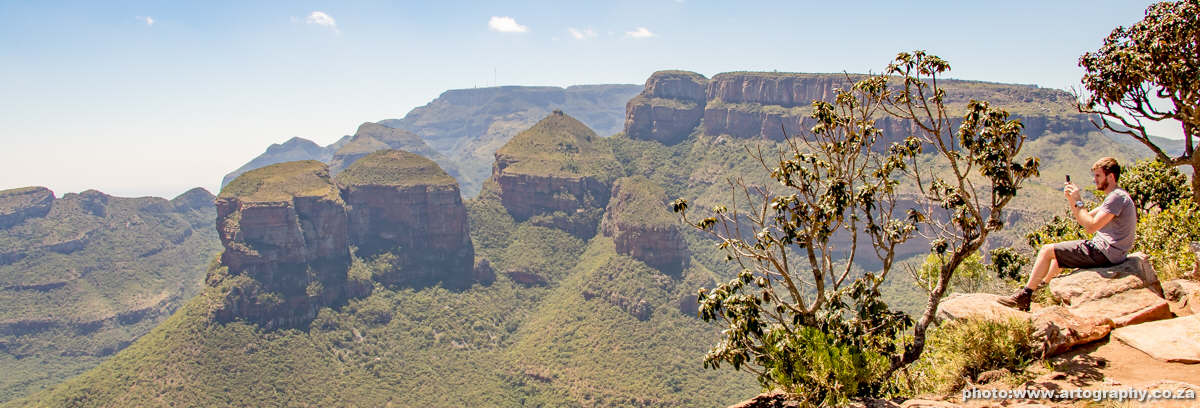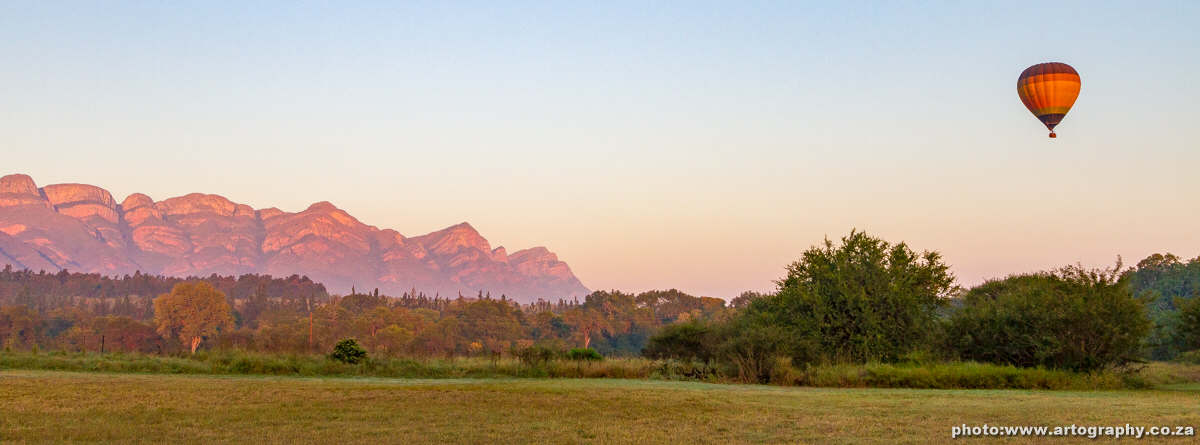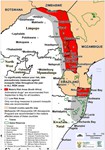A Quick Guide to South Africa
Welcome to the southern tip of Africa. Here, two great oceans meet, warm weather lasts most of the year, and big game roams just beyond the city lights.
This is where humanity began: our ancestors' traces are still evident in fossilised footprints 80 000 years old, and in the world's oldest rock paintings.
Today, South Africa is the powerhouse of Africa, the most advanced, broad-based economy on the continent, with infrastructure to match any first-world country.
Passport & Visa Requirements
Requirements for entry into South Africa differ from country to country, and are subject to change. Always make enquiries before travelling to South Africa.
For more information on the basic requirements for entering South Africa as well as links to full information on visas – what they are, who needs them, and when, where and how to apply for them please visit the SouthAfrica.info website.
Required Clothing
For summer in Africa you’ll need to keep cool, so pack lightweight clothes. In winter you’ll be surprised at how cold it can be in some areas, so bring a jumper or sweatshirt. You will never need a heavy coat or jacket, but a light raincoat can be useful, especially in Cape Town. For a safari bring long sleeves and long trousers, if only to protect against mosquitoes and thorn bushes. The game drives will either start out chilly with an 06h00 start and end under the blazing sun,
or vice versa, with a hot late afternoon start and a return after sunset, so take a wrap or pullover of some sort.

Electricity
The South African electricity supply is 220/230 volts AC 50 HZ. Most plugs are 15 amp 3-prong or 5 amp 2-prong, with round pins. If an adaptor is called for, consider bringing one with you, although they can be purchased locally. US-made appliances may need a transformer.
Social Conventions
South Africa’s biggest cities are very westernised and hold few cultural surprises for Europeans. Handshaking is the usual form of greeting, sometimes in a more elaborate African handshake that foreigners will pick up readily. Casual wear is widely acceptable. Smoking is prohibited in public buildings and on public transport. The presence of so many diverse ethnic backgrounds certainly adds some spice outside of the main business centres.
Languages
The official languages are Afrikaans, English, isiNdebele, isiXhosa, isiZulu, Sepedi, Sesotho, Setswana, Siswati, Tshivenda and Xitsonga.
Shopping
Opening Hours - Many shops stay open until at least 17h00, and large shopping malls and tourist spots generally stay open even later. Sunday shopping is very common too.
Credit Cards - MasterCard and Visa are preferred. ATMs are available in all towns, cities and shopping malls and most petrol stations, and accept international cards. Almost all hotels, shops, restaurants, national parks and game reserves accept credit cards. They are now acceptable at most petrol stations too, but since that is a relatively new measure, it's worth checking before you fill up.
Travellers Cheques - Valid at banks, hotels, restaurants and some tourist-orientated shops. To avoid additional exchange rate charges, travellers are advised to take traveller's cheques in Pounds Sterling or US Dollars.

Eating - Regional Specialities
Boerewors - A fairly spicy high-quality sausage, essential for a braai (barbecue)
Bobotie - A curried mince stew often studded with raisins).
Tomato Bredie - Meat, tomato and vegetable casserole
Biltong & Droëwors - Biltong and Droëwors are most definitely trademark South African snacks and represent for many an important area of South Africa food culture. In a country where meat is a daily dietary requirement for most people, these dried meat delicacies come in a variety of textures and flavours, depending on the meat used and the seasoning applied.
Generally speaking, South African dried meat, like Biltong and Droëwors are made from beef which is hung to dry. Although beef biltong is probably the most popular kind of biltong, many people enjoy biltong made from game and even from ostriches.
Tipping
A tip of 10 to 15% is generaly the norm.
Drinking Age
18 years
Driving In South Africa
Any valid driver's licence is accepted in South Africa, provided it bears the photograph and signature of the holder and is printed or authenticated in English.
However, vehicle hire companies may also require an international driver's licence. It is worth confirming requirements with your travel agent or the vehicle hire company when making your booking.
'Keep left, pass right' is the general rule of driving in South Africa. This also applies to highway (freeway) driving. Cars in South Africa are right-hand drive vehicles, with the gear shift operated with the left hand.
Don't ever stop to pick up hitchhikers. If you are worried about someone on the side of the road, report it to the police station in the next town.

Food & Drink
Mains water is safe to drink. Milk is pasteurised and dairy products are safe for consumption, as are local meat, poultry, seafood, fruit and vegetables. Diarrhoea remains the most common cause of ill health in travellers, with South Africa graded as an intermediate risk country. The standard of food safety and preparation is generally good and poses little threat to your health, but sensitive travellers should follow the advice to 'cook it, peel it or leave it.'

